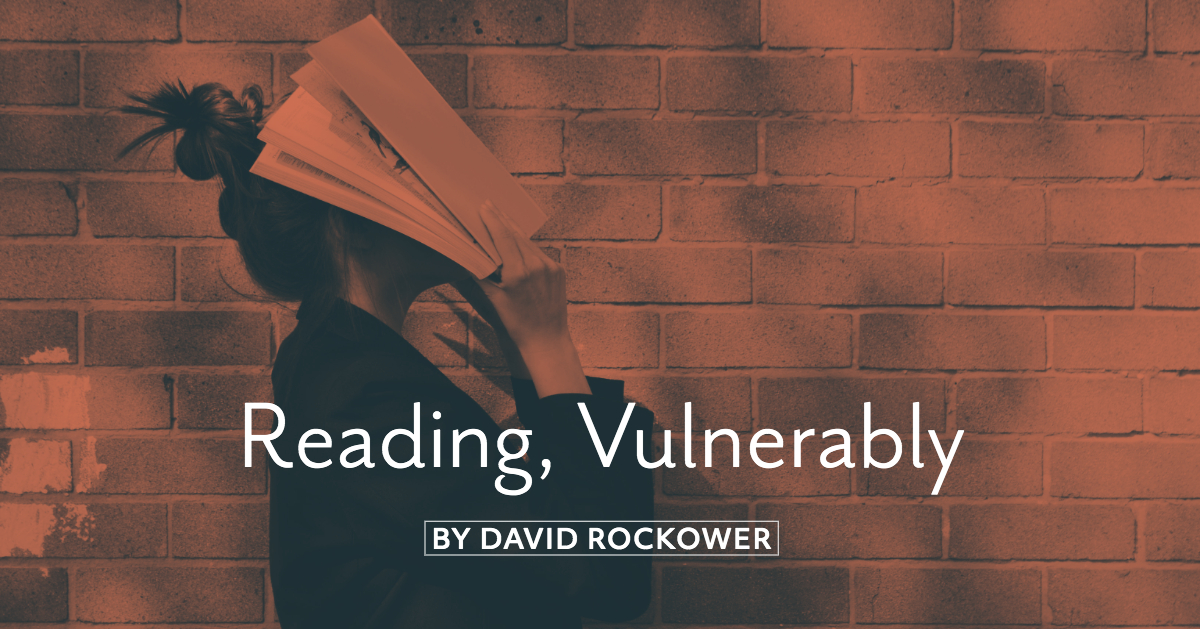 The room was silent—the good kind of silent—where twenty middle schoolers are staring into the pages of twenty different books. On this day, most seem locked in; I didn’t notice any wandering eyes or repetitive glances at the clock. After kneeling to talk with Catherine about the dilemma her favorite character faced, I noticed Paisley sitting quietly, her book closed on the table. She rested her chin on her palm and stared off toward the corner of the room. A week earlier, Paisley—one who only recently considered herself an avid reader—asked me for a copy of The Outsiders. She told me someone had recommended it, and she wanted to give it a shot.
The room was silent—the good kind of silent—where twenty middle schoolers are staring into the pages of twenty different books. On this day, most seem locked in; I didn’t notice any wandering eyes or repetitive glances at the clock. After kneeling to talk with Catherine about the dilemma her favorite character faced, I noticed Paisley sitting quietly, her book closed on the table. She rested her chin on her palm and stared off toward the corner of the room. A week earlier, Paisley—one who only recently considered herself an avid reader—asked me for a copy of The Outsiders. She told me someone had recommended it, and she wanted to give it a shot.
“Did you finish?” I whispered.
“No,” she said. “I just need a minute.” And then the tears came. Her favorite character had died. “I’ve never felt this way about a book before. I think I’m overreacting. It feels silly.”
“I’m sorry you’re upset right now. No, you’re not overreacting. It’s so cool you found a book to connect with so deeply,” I said.
She left the room, said she needed some time to compose herself. Later that morning, I saw her sitting in the hallway talking to another student. As she gestured, I imagined her relaying the events from the book to her listener. Sure enough, as I walked by, she said, “This book! I can’t get it out of my head.”
During the final period of the day, I received a text from a colleague just down the hall—Paisley’s advisor and social studies teacher. It said, “Paisley just made me cry.” After school, I touched base with my colleague, who relayed Paisley’s animated retelling of the story, the loss of a character who felt like a friend, and her inability to shake the feeling that, suddenly, the act of reading was just elevated to a whole new level.
Reflecting on this transformative reading experience, I wondered about the variables that needed to fall into place to make something like this happen. First of all, she needed the freedom to select a book she was interested in reading. Had her reading selections been dictated by a teacher who felt that The Outsiders should only be taught in freshman English class, this sixth grader wouldn’t have had the opportunity to read the book in school. Are there elements of the book she may not fully grasp? Probably. Might she benefit from rereading it again as an older student? Sure. But after witnessing the deep connection she made with the story, I wouldn’t ever want to deny her—or any child—such an experience.
She also benefited from being part of a classroom community that embraced vulnerability. Not every classroom invites and embraces emotional reactions. The fact that Paisley was able to shed tears about a book and was subsequently comforted by middle school students and teachers speaks volumes about the school culture. An acquaintance sat with her in the hall, listening to her break down the reasons why this character resonated with her. The social studies teacher shed a tear as he listened to her explain how, finally, she understood the power of story. The students and teachers allowed her to feel publicly and supported her while she sorted through the range of emotions.
Paisley found me the next morning, held up a wad of folded papers, and said, “David, I’ve written pages about this! Pages!” There was no assignment given—she did this on her own, because she felt moved to write.
Paisley said she was willing to share this experience with the class (not everyone knew why she was upset and had to leave the classroom). During our next session, Paisley and I retold the story together—from the moment I noticed her staring off into the corner of the room, to when she needed to leave to regain her composure. She smiled as she tried to articulate the feeling she had when the emotions hit:
It was weird to feel myself getting upset after reading something that never actually happened in real life. The character isn’t real—I know that—but for some reason, he still felt like a friend.
After I realized he died, all I could think about was my other favorite character. I needed to know if he was going to be ok. I actually skipped ahead in the book to find out.
I used to tell people that Harry Potter was my favorite book, but it never made me feel like this. I will never forget this book.
Next, I shared two emotional experiences from my own reading life: once alone at home, when I threw a tattered classic across the room before reluctantly picking it up with shaky hands to read its final pages. And another time, in class, when I was reading aloud and couldn’t go on—I dropped my head and handed the book off to a student who took over while I ran my sleeve across my face. I asked if anyone else had a similar reading experience. Hands shot up and students shared memories of titles they’d read years ago but whose characters remain tattooed on their hearts. Most told their stories with smiles, as if remembering the escapades of a long-lost relative. A few spoke quietly, with a reverence reserved for personal moments.
As a Heinemann Fellow, I’m investigating the impact that teacher vulnerability has on student learning experiences. I’m on the lookout for moments when an act of vulnerability leads to a memorable experience for my students. Though this particular act was initiated by a student, it gave me the opportunity to share memories of my own reading life. Telling some of these stories required vulnerability.
During my research, I’ve wondered how teacher vulnerability might impact students academically. Is there a connection between teacher vulnerability and academic growth? It’s clear to me that when I am vulnerable and authentic, my relationships with students are strengthened. And strong teacher-student relationships provide a foundation for learning. But I’ve also noticed that—in classrooms that embrace vulnerability—many students are more willing to grapple with what it means to be real when we read and write. And just as real writing is a catalyst to quality writing, experiencing emotional resonance while reading propels us toward engaged reading. These are a few of the things I plan to track over the course of the school year.
I look forward to observing Paisley’s growth as a reader. Was this a one-hit-wonder reading experience? Or, will her deep connection with The Outsiders lead to improved reading stamina? Better comprehension? Willingness to try new genres? Increased desire to talk about the books she’s read?
Do all students need to cry in class to prove their love of reading? Of course not. Readers will be moved in different ways: some may smile and laugh quietly, others may feel a sadness they only share with a friend, and a few may be quietly inspired to seek out every title written by a specific author. Regardless of their reaction, schools and teachers need to create spaces where students feel safe to feel the range of emotions when reacting to the written word.
 David Rockower (Boalsburg, PA) believes that classrooms should be a second home for students, where they discover and celebrate strengths, where student voice, choice, and engagement are paramount. Currently, he teaches English at the Delta Program, a small, democratic middle school in the State College Area School District. He is also a bi-monthly essayist for State College Magazine and has published articles in The Washington Post and Education Week. In 2017, David was awarded as National Middle School English Teacher of the Year by the National Council of Teachers of English. You can follow him on Twitter @dgrock
David Rockower (Boalsburg, PA) believes that classrooms should be a second home for students, where they discover and celebrate strengths, where student voice, choice, and engagement are paramount. Currently, he teaches English at the Delta Program, a small, democratic middle school in the State College Area School District. He is also a bi-monthly essayist for State College Magazine and has published articles in The Washington Post and Education Week. In 2017, David was awarded as National Middle School English Teacher of the Year by the National Council of Teachers of English. You can follow him on Twitter @dgrock


